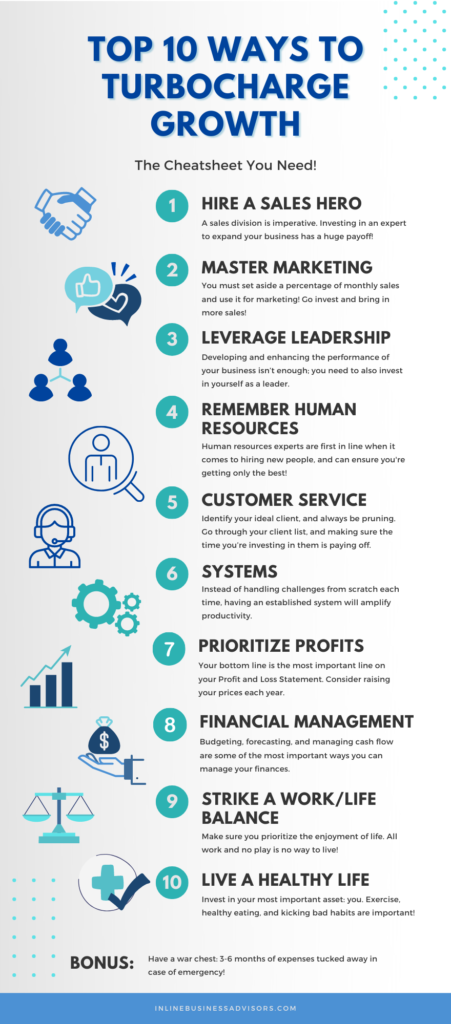Blog

Musings from the coach
Entrepreneurship is a high-stakes poker game where your energy is your most valuable currency. With it, you can bet on opportunities, call bluffs of adversity, and fearlessly push the game forward. Your energy is the pulsating life force that infuses every decision, innovation, and negotiation in your entrepreneurial journey.
But, expend it without replenishment, and you risk faltering on the precipice of your venture’s success. That’s when the bets don’t pay off, the adversaries gain the upper hand, and the game of entrepreneurship loses its thrilling allure. You’re left grappling in the dark, blinded by fatigue, and overwhelmed by stress and burnout.
How do you guard against this energy bankruptcy? How do you keep a high energy level as an entrepreneur in a realm notorious for its relentless pace, formidable pressures, and unpredictable terrain? Over the years, we’ve had the opportunity to observe, interact with, and learn from high-energy entrepreneurs. Their paths are varied, their ventures diverse, but they all share a set of habits that form the bulwark against energy depletion. The following is a roundup of these crucial habits, which they’ve consistently employed to fuel their entrepreneurial journey with unflagging energy.
The Illustrious Enigma: The High-Energy Entrepreneur
High-energy entrepreneurship is more than just owning a business. High-energy entrepreneurs are a rare breed, a force of nature that commands respect, admiration, and a touch of envy. They infuse energy into everything they do, inspiring their teams, charming their clients, and winning over their competitors.
The secret to their tireless vigor is not genetic predisposition or unlimited access to caffeine. It’s a carefully cultivated set of habits that fosters energy, vitality, and relentless drive. These habits create a delicate ecosystem for sustained energy in entrepreneurship, an ecosystem we wish to share with you.
Habit 1: Embracing a Potent, Purpose-Driven Morning Ritual
Like a well-oiled machine that’s switched on each morning, high-energy entrepreneurs have perfected the art of starting their day with an invigorating ritual. This personalized, purposeful routine engages the mind, body, and spirit, laying a solid foundation of positivity and control for the day’s journey.
“No matter where I am, I rise early – usually around 5 am,” Sir Richard Branson, founder and chairman of Virgin Group, writes. “Exercise and family time put me in a great mind frame before getting down to business. I like to wake up early so that I can work through my emails before most of the world logs on.”
Media mogul Oprah Winfrey’s morning routine is centered around stillness and gratitude. She wakes up naturally, without an alarm clock, and her first task of the day is to walk her dogs. She then performs various spiritual exercises before starting a 20-minute meditation session that helps her begin her day with a positive mindset. This mindfulness practice contributes significantly to her energy reservoir, allowing her to tackle her manifold responsibilities with grace and vigor.
As an aspiring high-energy entrepreneur, adopting a morning routine that aligns with your personal needs, priorities, and lifestyle is a powerful tool in your arsenal. It’s not about copying Oprah’s or Sir Branson’s routines; instead, it’s about understanding the principle behind it: starting the day with intentionality and focusing on tasks that build energy and momentum for the hours ahead.
Habit 2: Prioritizing Nutrition for Energy, Not Just Sustenance
Much like a high-performance sports car requires premium fuel, a high-energy entrepreneur needs optimal nutrition. Tailored nutrition isn’t about fad diets or deprivation. It’s about understanding your body’s unique requirements and delivering the necessary nourishment effectively.
According to multiple studies, providing consistent, high-quality nourishment is one of the most potent tools to keep a high energy level as an entrepreneur. These nutrient-dense foods are proven to provide sustained energy release, aid in producing energy-regulating hormones, and boost cognitive functioning.
Rich in complex carbohydrates, whole grains are a powerhouse of sustained energy release. This leads to reduced fatigue thanks to the slow, steady release of glucose that these foods provide. Lean proteins help tissue repair and growth and play a significant role in the production of enzymes and hormones that regulate metabolism and energy.
Bursting with essential vitamins, minerals, and fiber, fruits and vegetables are an entrepreneur’s best friend for a quick energy boost. They also help prevent diseases and provide vital nutrients that promote overall health.
Hydration is equally vital. Even mild dehydration can cause feelings of fatigue and reduce cognitive performance. Drink plenty of water throughout the day. It’s a simple yet powerful way to maintain high energy levels.
Habit 3: Practicing the Art of Mindful Movement
A high-energy entrepreneur embraces the power of movement as a means of maintaining physical health and as a strategy for mental rejuvenation and energy amplification. This is the art of mindful movement.
Whether it’s an energizing morning run, a stress-relieving yoga session in the afternoon, or a joyful dance-off with your children in the evening, integrating movement into your daily routine profoundly impacts your energy levels.
It’s not just about burning calories. Even brief periods of physical activity initiate a cascade of beneficial biochemical reactions. These include the release of endorphins, often called the body’s ‘natural energy boosters’, which uplift your mood and create a sense of well-being.
The mental dividends of regular exercise are equally impressive. Studies show that physical activity enhances cognitive function, boosts creativity, and aids stress management, all of which contribute to maintaining high energy levels.
Hence, as an entrepreneur, prioritizing mindful movement can significantly impact your energy reservoir. Make it a part of your daily routine, and witness a noticeable boost in your physical vitality, mental clarity, and overall energy levels. You don’t have to run a marathon or hit the gym for hours; just stay active, mindful, and energized.

Habit 4: Implementing Deep Work for Sustainable Productivity
High Energy Entrepreneurs are not just busy; they’re productive. They know that time is finite and are adept at making the most of it. How? By practicing deep work, a concept introduced by Georgetown University Professor Cal Newport.
Deep work requires you to dedicate chunks of time to perform cognitively demanding activities without distraction. This practice aids in achieving a state of flow, leading to higher productivity, creativity, and satisfaction. Deep work is a potent strategy for maintaining a high energy level as an entrepreneur, ensuring you accomplish more in less time.
Habit 5: Recognizing the Importance of Rest and Rejuvenation
As counterintuitive as it may sound, rest is the secret weapon of every High Energy Entrepreneur. It is not the adversary of productivity but its greatest ally. Rest and rejuvenation go beyond merely getting adequate sleep; it’s about disengaging from work-related tasks routinely to recharge mentally, emotionally, and physically.
Highly successful entrepreneurs like Arianna Huffington have long advocated for adequate rest and sleep. Huffington famously experienced a wake-up call when she collapsed from exhaustion in 2007, leading her to reprioritize sleep in her life. This incident ultimately inspired her to write “The Sleep Revolution”, where she extols the virtues of rest, highlighting its critical role in productivity and success.
The recent resignation of Jacinda Ardern as New Zealand’s Prime Minister further underlines the importance of rest and rejuvenation. Despite steering New Zealand through numerous crises, including the COVID-19 pandemic and the Christchurch mosque shootings, Ardern stepped down, acknowledging that the continuous strain had taken its toll and left her without “enough in the tank” to lead. Her decision underscores the dangers of burnout and the crucial need for rest in any leadership role.
Numerous scientific studies corroborate these anecdotes. The Division of Sleep Medicine at Harvard Medical School reports that inadequate rest can impair attention, alertness, concentration, reasoning, and problem-solving skills. In contrast, sufficient rest and disengagement from work-related activities can enhance creativity, improve decision-making, and boost energy levels.
Thus, the art of rest is not a luxury but a necessity for high-energy entrepreneurship. Embrace strategic unplugging, prioritize sleep, and reap the benefits of being a well-rested, energized, and more productive entrepreneur. Remember, even the most powerful machines need downtime for maintenance and repairs. The human body and brain are no different.
Habit 6: Building the Resilience Reservoir
The entrepreneurial journey is mentally taxing, with ups, downs, and unforeseen turns. Building mental resilience is a critical habit for maintaining a high energy level as an entrepreneur. This involves adopting stress management techniques, mindfulness practices, and a growth mindset that sees challenges as opportunities rather than roadblocks.
Entrepreneurial giants such as Elon Musk and Jeff Bezos have spoken at length about the importance of resilience. Musk has shared his battles with failures, from the initial unsuccessful launches of SpaceX to the numerous challenges Tesla faced. According to Bezos, “We need big failures if we’re going to move the needle – billion-dollar scale failures. And if we’re not, we’re not swinging hard enough.”
These journeys underscore that being an entrepreneur isn’t a sprint but a marathon that requires resilience. This resilience ritual empowers them to weather the storms of entrepreneurship with grace and fortitude, ensuring they remain energized, undeterred, and relentless in pursuing their vision.

Habit 7: Prioritizing Personal Growth and Development
Another defining characteristic of a high-energy entrepreneur is the commitment to personal growth and development. They understand that investing in their knowledge and skills doesn’t just pave the way for professional success but also energizes them on a personal level.
Notable figures like Warren Buffet and Bill Gates are renowned for their voracious reading habits. Buffet, one of the most successful investors globally, reportedly spends 80% of his day reading, believing it to be a primary method of self-improvement. Similarly, Gates is known for his annual reading lists, emphasizing the value he places on continuous learning.
But it’s not just about consuming information; it’s about implementing it.
High-energy entrepreneurs are not just scholars but doers, constantly applying new insights into their lives and businesses. This unyielding quest for improvement and enlightenment keeps the entrepreneurial spirit vibrant and energetic. It stokes the fires of curiosity, driving the High Energy Entrepreneur to consistently push the boundaries of what they know and can do.
Habit 8: Fostering Meaningful Relationships
One of the cornerstones of high-energy entrepreneurship is cultivating meaningful relationships. High-energy entrepreneurs understand that these relationships form a lifeline, a source of professional networks, emotional support, and camaraderie.
Consider Tony Hsieh, the late CEO of Zappos. He revolutionized customer service by fostering genuine connections with customers and employees alike. His belief was simple: business is about people, and building relationships leads to success. Likewise, Howard Schultz, former CEO of Starbucks, often attributed the company’s global success to its focus on building relationships with customers, employees, and suppliers.
A Forbes report substantiates this, indicating that having a supportive network can mitigate stress, promote psychological well-being, and enhance work engagement and energy levels. These relationships act as a renewable source of energy, refueling high-energy entrepreneurs during challenging times and propelling them during moments of triumph.
As a High Energy Entrepreneur, cultivate meaningful relationships. Invest time and effort into fostering connections that enrich your personal and professional life. This investment will pay dividends not just in the form of a robust network but also in a reservoir of energy that can help sustain you throughout your high-energy entrepreneurial journey.

Final Thoughts
The life of an entrepreneur can be a thrilling, challenging, and ultimately rewarding journey. It takes more than just ambition and a good idea to succeed. It requires a level of energy and resilience that can often seem superhuman. But remember, high-energy entrepreneurs aren’t born; they’re made. They have learned to harness their energy effectively, using it to drive their vision forward.
This isn’t always an easy path. It’s a journey of deliberate choices, calculated risks, and an unwavering commitment to personal and professional development. Ultimately, it’s about cultivating an energy that’s relentless, resilient, and ready to take on whatever the entrepreneurial journey may bring.
Are you ready to join the ranks of high-energy entrepreneurs? The key habits are right here. Implement them, iterate on them, and infuse them with your unique spirit. As an entrepreneur, your journey is about both reaching the destination and navigating the path with vibrant energy.

Larry Vivola is a successful business coach who coaches entrepreneurs anywhere in the world via Zoom. If he’s not coaching he’s making meatballs and entertaining friends and family!
Free Advice Sucks! Invest in a one-time strategy session and pick Larry’s brain to help solve a pressing problem, discuss an idea, or brainstorm how to give your business performance a Turbo Boost!!! In the end your investment will yield you more money, time, and happiness!
In today’s globalized business landscape, opportunities abound for aspiring entrepreneurs. However, this accessibility also translates to increased competition and many challenges for start-ups, particularly those led by inexperienced business owners. Many find themselves facing burnout within their first year, ultimately hindering their brand’s growth. To combat this, building a strong support system for business is imperative. This article offers an in-depth look at various strategies for creating a successful enterprise support system, providing the guidance you need to navigate the competitive world of entrepreneurship and lay the foundation for long-term success.
This article will discuss:
- Why is a support system important in business?
- How do you build a business support system?
- Health work culture as a support system for business
- Sales and marketing tools as a support system for business
- Intentional work policies for building a sustainable support system for businesses
- Ways to find proven solutions in business management
Why is a support system important in business?
It’s common for business owners to experience challenges. From managing cash flow to building the perfect team, the responsibility can take its toll. Besides, it can adversely impact your physical and mental health as well as your decision-making ability.
Let’s examine the need for enterprise support systems. A strong support system helps business owners navigate these fluctuations, making it easier to maintain focus, enthusiasm, and determination. It’s crucial to remember that no one can do everything alone. Seeking help from various sources—whether it’s your team, industry peers, or tools and resources—can be a game-changer for your entrepreneurial journey. In addition, an enterprise support system can help you find the perfect work-life balance. It can create a culture that promotes growth while simultaneously overcoming all the challenges of a growing business. Therefore, it can be the secret ingredient to not only surviving, but also thriving as a business owner.
How do you build a business support system?
Creating a well-rounded support system that nurtures both your business and personal growth is more challenging than you might think. This is because there is no one-size-fits-all approach. Challenges might vary according to size or area of business, which is where you as an entrepreneur have to act and design a functional support system that works for you and your business. Even seasoned entrepreneurs have walked this path and figured out a support system that accelerated their growth.
What makes a good business support system? At its core, it should encompass a diversity of elements, including a healthy work culture, efficient sales and marketing tools, intentional work policies, and a network of like-minded entrepreneurs. By carefully cultivating each of these areas, business owners can create a supportive environment that fosters growth, innovation, and long-term success.
Healthy work culture as a support system for business
Forming the backbone of an effective business support system, a healthy work culture significantly boosts morale, productivity, creativity, and collaboration. The primary elements of such a culture include open communication, professional development, team celebrations, and work-life balance.
Firstly, open communication is integral to fostering a sense of belonging and trust among employees. It provides a platform for employees to voice their ideas and concerns, leading to a transparent work environment. Such transparency not only resolves potential issues at an early stage but also promotes collaboration and drives continuous improvement.
Secondly, providing professional development opportunities exemplifies commitment to employee growth, thereby creating a culture of learning. This strategy significantly motivates employees and contributes to the long-term success of the organization by nurturing a skilled, knowledgeable workforce.
Furthermore, celebrating team successes is a vital aspect of maintaining a positive work environment. Acknowledging and recognizing achievements fosters a sense of pride and camaraderie, motivating employees towards greater accomplishments. These celebrations serve as a reminder of shared goals and highlight the importance of teamwork.
Finally, the promotion of a healthy work-life balance is essential. Setting realistic targets, avoiding overburdening employees, establishing daily work boundaries, and encouraging breaks are all measures that help maintain employee engagement and resilience. Ensuring this balance is struck allows employees to excel in their responsibilities without experiencing burnout.

Sales and marketing tools as a support system for business
Sales and marketing, supported by digital tools, are integral to business growth. Innovative platforms for customer relationship management (CRM), social media, email marketing, lead-generation, and analytics, streamline processes, automate tasks, and facilitate data-driven decisions.
Here are some key ways these tools strengthen the support system for businesses:
Improved Efficiency: Sales and marketing tools improve efficiency by automating manual tasks like lead generation, email marketing, and CRM. This allows teams to focus on strategic activities like relationship building. Tools like the IBA lead magnet can boost productivity and cash flow for small businesses.
Enhanced Customer Engagement: Sales and marketing tools enhance customer engagement through understanding customer preferences, enabling personalized marketing campaigns and multi-channel engagement. This data-driven approach can increase customer satisfaction and loyalty.
Data Analysis and Insights: These tools offer data analysis and insights from customer interactions, purchase history, website traffic, and social media engagement. These insights inform decisions, optimize growth strategies, and improve results.
Higher conversion rates: Sales tools increase conversion rates by assisting sales teams to engage prospects and close deals. CRM systems, sales automation software, and analytics platforms manage customer data, track sales activities, and provide relevant collateral.
Revenue Growth: Better marketing will stimulate revenue growth by automating lead generation and optimizing marketing campaigns. Additionally, these tools track key performance indicators (KPIs), such as customer acquisition cost, customer lifetime value, and ROI, leading to improved financial outcomes.

Intentional work policies for building a sustainable support system for businesses
Intentional Work Policies (IWPs) are a crucial pillar of a robust business support system. They prioritize employee well-being, fostering an environment conducive to growth and productivity. IWPs act as guidelines, shaping operations from engagement to decision-making, enhancing satisfaction, and preventing burnout. This contributes to a formidable business support system.
A key component of IWPs is flexible working hours. Granting autonomy over work schedules caters to diverse personal and professional needs, boosting morale, preventing burnout, and facilitating optimal performance. Employees feel valued and motivated to excel.
Remote working, another vital IWP aspect, allows for a work-life balance. It recognizes the varied needs of the modern workforce, demonstrating commitment to employee support. Also, it broadens the talent pool, enabling the recruitment of diverse skill sets and experiences from a wider geographical scope.
Promoting transparency in communication is essential to IWPs. Open dialogue cultivates trust and collaboration, fostering a supportive environment. Employees feel valued and engaged when their thoughts are encouraged, and potential issues can be identified and addressed early.
IWPs, founded on flexible hours, remote working, and transparent communication, create a powerful business support system. Their adoption signals a progressive approach and commitment to sustainable growth for both employees and the organization.

Ways to find proven solutions in business
Last but certainly not least, networking with a like-minded community of entrepreneurs can provide invaluable support. By connecting with peers who share similar experiences, challenges, and aspirations, you can learn from their successes and failures, discover proven solutions, and gain fresh perspectives. In a world where competition is fierce and businesses face constant hurdles, these relationships can be the key to unlocking the knowledge and resources needed to thrive. It can not only provide emotional support but also lead to collaborative opportunities that propel your business forward.
One of the most significant benefits of networking is gaining insights from those who have already achieved the success you are aiming for. By engaging in discussions with established entrepreneurs, new business owners can learn about practical solutions and strategies proven to work in real-world situations. This invaluable knowledge can be applied to current challenges, helping businesses avoid common pitfalls and bypass potential roadblocks.
Another essential aspect of networking is the opportunity to forge meaningful relationships with peers and mentors. These connections can provide ongoing support, encouragement, and guidance throughout the entrepreneurial journey to build a resilient support system. It is like having a strong network of trusted advisors who can help businesses navigate through challenges and make informed decisions.
Lastly, networking exposes entrepreneurs to numerous resources and opportunities that can facilitate business growth. By connecting with others who share similar goals, business owners can access new markets, clients, and partnerships, as well as stay informed about industry trends and innovations.
Final Thoughts
Having a sturdy support system for your business requires seamless integration of various elements. This includes fostering a work culture of mutual support and inclusivity. Additionally, equipping employees with advanced tools enhances productivity and outcomes. Intentional work policies should be developed to improve workforce management and retention. Networking with similar entrepreneurs is also crucial, offering a platform to discuss business challenges and find practical solutions. With these components in harmony, your business support system can bolster growth, resilience, and innovation, becoming a powerful force for your company’s success.
Building a strong support system as a business owner is a multifaceted endeavor that requires time, effort, and dedication. By nurturing each of the elements discussed in this article, you can create an environment that not only sustains but propels your business toward success. As you embark on this journey, remember that the strength of your support system lies in its diversity and integration. By uniting these aspects of business management, you will create a tapestry of support that empowers you and your team to achieve your entrepreneurial dreams. Build the support system you deserve, and watch as your business reaches new heights in no time.

Larry Vivola is a successful business coach who coaches entrepreneurs anywhere in the world via Zoom. If he’s not coaching he’s making meatballs and entertaining friends and family!
Free Advice Sucks! Invest in a one-time strategy session and pick Larry’s brain to help solve a pressing problem, discuss an idea, or brainstorm how to give your business performance a Turbo Boost!!! In the end your investment will yield you more money, time, and happiness!
As a small business owner, you’re no stranger to the trials and tribulations of entrepreneurship. But even the most seasoned among us could not have anticipated the economic turbulence we’ve faced over the past few years. On February 27, 2023, US Treasury Secretary Janet Yellen acknowledged the harsh reality that has seeped into our lives: from the gas pumps to the grocery aisles, inflation is here, and it’s hitting businesses hard.
In an exclusive interview with CNN’s Melissa Bell from Kyiv, Yellen offered a glimmer of hope, suggesting that the Federal Reserve’s efforts could lead to a soft landing. But for many of us, that hope is overshadowed by the daunting challenges of ongoing crises: the war in Europe, lockdowns in China, and new strains of COVID disrupting the supply chain and sending prices skyward.
As global citizens, we cannot escape the fallout of these events, but we can take action to protect our livelihoods and the businesses we’ve poured our hearts into. In this blog post, our goal is to provide you with a roadmap to not only buffer yourself and your business against these harsh realities but also to emerge stronger and more resilient than before. Because, at the end of the day, it’s not just about survival—it’s about thriving and creating a better future for ourselves, our families, and our communities.
What is Inflation, and How Does It Impact Small Businesses?
Inflation, in its most basic form, is the increase in the average price level of goods and services over time. It is a natural part of any economy but can become problematic when it accelerates too quickly or remains at high levels for an extended period. In times like these, small business owners must understand how inflation impacts their operations and the strategies they can employ to mitigate its adverse effects.
When inflation rises, purchasing power diminishes, meaning the same amount of money buys fewer goods and services. This erosion of purchasing power has far-reaching consequences for small businesses, as it affects both their costs and revenues. Let’s delve deeper into these two key areas:
- Rising costs: As a small business owner, you’re no stranger to the delicate balancing act of managing expenses. High inflation raises raw material, labor costs, straining tight budgets. In turn, you may be forced to make tough choices: cut staff, lower quality, or raise prices due to rising costs.
- Reduced revenues: On the flip side, inflation can also take a toll on your revenue. When prices rise, customers may be more hesitant to spend, leading to lower sales and, ultimately, decreased profits. If prices don’t adjust to inflation, profit margins suffer, risking financial instability.
Is Inflation Good or Bad for Business?
The effects of inflation on small businesses can be complex and nuanced, with both positive and negative aspects. The impact of inflation on your business will largely depend on circumstances and adaptability to change. Let’s explore how inflation can be both good and bad for businesses.
The Good:
- Increased revenues: When managed effectively, a moderate level of inflation can lead to higher revenues for businesses. A raise in prices may yield higher profits if costs don’t increase disproportionately.
- Easier debt management: Inflation eases debt burden by decreasing real value over time. This can be especially beneficial for small businesses with long-term loans, as the cost of repaying those loans becomes relatively smaller as inflation erodes the purchasing power of money.
- Improved competitiveness: Flexible businesses adapting pricing and costs during inflation gain competitive advantage. By staying ahead of inflationary trends, these businesses can maintain their profit margins and even grow their market share.
The Bad:
- Increased costs: One of the primary adverse effects of inflation on businesses isincreased input costs like raw materials, labor, and rent. These rising costs pressure profit margins, forcing price increases or expense cuts.
- Reduced consumer spending: High inflation often leads to reduced consumer spending, as people become more cautious with their money. This can decrease demand for goods and services, negatively impacting businesses’ revenues and growth potential.
- Uncertainty and volatility: Inflation can create an uncertain and volatile business environment, making it difficult for businesses to plan for the future. This uncertainty can hinder long-term decision-making and investment, ultimately stifling growth and innovation.
In other words, inflation’s impact depends on situation and mitigation strategies. Warren Buffet emphasizes understanding inflation and effective management. Strategies help navigate uncertainty, fostering entrepreneurial resilience and adaptability.

How to Survive Inflation as a Small Business: Strategies and Tips
Thriving in an inflationary environment requires adaptability, resilience, and strategic thinking. Here are some practical strategies and tips to help your small business successfully navigate the challenges posed by inflation:
Avoid taking on new debt
Resist the urge to apply for a new business credit card or increase your business’s line of credit this season. Inflation eases existing debt but exercise caution considering new debt in high inflation. Higher interest rates often accompany inflation, increasing the cost of borrowing and making it more challenging to repay loans.
Increase efficiency
Efficiency is vital during times of inflation. Look for ways to streamline processes, optimize workflow, reduce waste, and automate repetitive tasks where possible. Invest in technologies for productivity, reducing labor costs, and freeing time to achieve more with less.
Control costs
During periods of inflation, keeping a close eye on your business expenses is important. Reduce costs via better supplier deals, cutting unnecessary expenses, and cost-effective production methods. Consider outsourcing tasks or hiring freelancers rather than hiring full-time employees who may require higher wages and benefits.
Adjust your pricing strategy
Adjust pricing to maintain profit margins, despite challenges passing full cost increases to customers. This may involve implementing price increases, offering discounts for bulk purchases, or introducing tiered pricing structures. Consider implementing a price increase gradually, rather than all at once, to ease the impact on customers. Ensure any changes you make are well-communicated to your customers and justified by the value you provide.
Focus on customer retention and acquisition
Retaining existing customers is often more cost-effective than acquiring new ones, especially during economic uncertainty. Prioritize exceptional customer service, invest in relationship-building, and offer loyalty incentives to encourage repeat business.
At the same time, utilize digital marketing to target and attract new customers. Digital marketing targets specific customers, efficiently and cost-effectively. This is crucial during inflation. Leverage social media, email marketing, and search engine optimization (SEO) to reach a wider audience and showcase your business’s value.
Keep a close eye on the cash flow
Maintaining healthy cash flow is crucial to weather the storm of inflation. Monitor cash flow, reduce expenses, and stay on top of receivables to cover rising costs. You may also want to consider outsourcing tasks or hiring freelancers rather than taking on full-time employees. This can be a more cost-effective option in the long run.
Forge strategic partnerships with suppliers and other business partners
Negotiate with suppliers for inflation-adjusted terms like bulk discounts, extended payments, or price lock-in contracts. Partnering with other businesses, particularly those in complementary industries, can provide opportunities to share resources and expertise. For example, you might consider collaborating on marketing campaigns, sharing warehousing or shipping services, or jointly investing in new technologies to improve efficiency.
Innovate and adapt
Inflation can present opportunities for businesses willing to think outside the box. Consider introducing new products or services that cater to changing customer needs, or explore alternative revenue streams, such as online sales or subscription-based models. This can increase revenue and provide a buffer against inflation in your core business.

How Can My Small Business Cope with Inflation: Financial Management
Effectively managing your finances is crucial for navigating inflation as a small business owner. Here’s how you can maintain control over your business’s financial health and adapt to changing economic conditions:
- Monitor and update financial projections regularly: Inflation can significantly impact your business’s financial outlook. To stay ahead of the curve, keep a close eye on your financial projections and update them regularly to account for changes in costs, revenues, and other variables. This will help you make informed decisions, anticipate challenges, and identify growth opportunities.
- Adjust budgets and spending plans: As inflation affects your costs and revenues, it’s necessary to review and adjust your budgets and spending plans accordingly. This might involve reallocating resources to areas that require additional investment, cutting back on non-essential expenses, or prioritizing projects with the highest potential return on investment. Regularly reviewing and updating your budgets will ensure your business remains agile and responsive to the shifting economic landscape.
- Secure financing options to support growth during inflation: While taking on new debt during inflation can be risky, it’s still important to explore financing options that can support your business’s growth. Consider applying for grants or leveraging crowdfunding platforms to ensure your business has the resources it needs to capitalize on opportunities and weather the challenges of inflation.
Consider seeking professional financial advice: Navigating inflation can be complex and challenging, particularly for small business owners who may not have extensive financial expertise. If that’s you, seeking professional financial advice can be invaluable. A financial advisor or accountant can help you develop tailored strategies to manage inflation’s impact on your business, identify potential risks and opportunities, and ensure that your financial plans are aligned with your long-term goals.

Final Thoughts
Inflation can be a challenge for small businesses, but it’s not insurmountable. Survive and thrive during inflation by controlling costs, adjusting prices, diversifying products, increasing efficiency, and building relationships. Adapt to your unique business needs, embrace challenges as opportunities, and stay committed to improvement. Resilience, adaptability, determination, and strategic thinking can help your small business emerge stronger and more competitive.
Finally, we understand that having the right resources and support can make all the difference. That’s why we invite you to download our exclusive, free PDF resource, designed to help small business owners like you overcome the challenges you face every day. This valuable guide is more than just a collection of tips—it’s a treasure trove of insights and inspiration crafted with the passion and understanding only fellow entrepreneurs can provide. This invaluable resource is our gift to you as we stand together in our commitment to the success of small businesses. Click here to access your free PDF resource and take the first step toward a brighter future for your small business and community.

Larry Vivola is a successful business coach who coaches entrepreneurs anywhere in the world via Zoom. If he’s not coaching he’s making meatballs and entertaining friends and family!
Free Advice Sucks! Invest in a one-time strategy session and pick Larry’s brain to help solve a pressing problem, discuss an idea, or brainstorm how to give your business performance a Turbo Boost!!! In the end your investment will yield you more money, time, and happiness!
“The customer is always right” is perhaps the most-used and followed quote in any retail industry, especially in sales and marketing. It is believed that legendary retail magnate, Harry Gordon Selfridge, coined the phrase just to educate his team to empathize with the customers. Back then, there was no social media or website for customers to convey their complaints so they had to connect directly with the sales or support team to address any problem.
In this digital age, this quote doesn’t fit the operational strategy of any business. Social media has made communication a two-way street. When a misinformed customer defames your brand publicly, they’re not right. Identifying the ideal client is more crucial than simply finding customers for your business.
Before exploring high-value customer acquisition, let’s briefly examine the importance of finding the right customers.
Customers or clients are the end users of the product or services you offer. They pay for it and expect a kind of satisfaction to justify that payment. It is because of customers that a business exists. To sell your products or services, you need customers or clients to buy them. To boost sales, rely on word-of-mouth promotion from customers who refer friends and family. Building brand value and credibility requires showcasing an impressive company track record. So finding high-value customers, or to be precise, finding the right customer, is crucial to the growth of any business.
How to find customers for a business?
The question that most companies or brands in the retail or service industry are trying to seek new answers to is probably how to find business clients, or how to find the right customers for their business. Here are a few tips to help you identify your target customer or business client.
Identify your strength
Your brand should address a market need or offer an improved solution compared to existing alternatives, for products or services. Find out where your product or service stands out. Consider factors like delivery timeframe, product quality, customer support, or innovative technology used in your product/service. This can help you stand out among your target customers.
Find the customer’s pain point
Study the pain point of customers or clients within your niche industry and market. Try to find out what they want in a product or service. If it is exactly what your product or service stands out for, then congratulations! You have discovered your target customer range.
Set expectations for customers
Create a brand message conveying that your product or service can fulfill customers’ expectations. The first thing any customer or client wants to know is what they are paying for. People who get a valid answer to this question from you are your customers.
Hire a team to convey your brand message
The final step in finding customers is making them aware of your presence in the market. Hire a talented team to get the word out through social media, emails, text messages, or even personal calls. The answer to where to find customers for your business will be “everywhere”. Customers can be worldwide; social media connects people globally, making borders irrelevant. So go and find your customer who will happily pay to consume your product or service.

How to identify the best customers for your business?
Knowing how to find customers for business, differentiate valuable ones from time-wasters. Recognize red and green flags to identify the ideal client for your business.
How to find customers for business – red flags
As we mentioned earlier, the “customer is always right” mindset is not a feasible approach or principle in today’s market. Not everyone who can or is ready to pay for your products or services is eligible to be your client or customer. Here are a few ways to identify the red flags if you want your business to grow.
Study customer behavior
Customers may have unattainable expectations, which is normal. Unsatisfied customers may switch brands or stay to complain without adding value. The latter doesn’t help your business. For instance, a customer purchased a wardrobe from you but a week later, demanded 100 percent cash back because the furniture did not complement the décor or is not spacious enough to meet the need.
Wasn’t this the customer’s responsibility to choose the right product? And what if the customer wants to keep the product for free since many sellers don’t request the return because the logistic expenses of the return might exceed the product price? Adopt a clear “no return” policy because complaints from these customers will never end.
Set perspectives for the team
Perspective is the culture, mission, and goal of your company that employees should never sacrifice to satisfy a customer. If your company has a certain policy or uses a particular technology to manufacture products, and the customer wants to change it or feels it is not worth the price, then it’s time to step back. Train your team to be polite with the customers but also teach them where to draw the line. In seeking how to find customers for a business, employees should not break company policy or business principles.
Accept that the customer is not right
The customer support team should learn to say ‘No’ to the customer making illogical demands, but in the process, they should not be offensive or rude. Some customers can be abusive to employees, which is why your management should support the team instead of the customer. If the team gets no support, they might move to better opportunities or worse, turn against the company because they have no one to support them.
Don’t try to retain bad customers
Customer dissatisfaction is real and a daily issue. Even companies like Apple and Google face this, yet they are globally renowned brands and tech giants that budding entrepreneurs look up to. Learn the reality that it is impossible to satisfy everyone paying for your products or services. In case the customer is misinformed about the product and has wrong expectations or is unable to optimally use the product, it is the responsibility of your team to explain the product in detail to the customer and guide them in the right direction.
Loyal customers are likely to understand the situation and change their minds, but those looking at it as an opportunity to exploit you will always have a reason to be dissatisfied. Look for the signs and eliminate those customers or clients as soon as possible. These customers are more likely to publicly defame your brand in expectation of gifts or discounts on their next purchase, and the cycle continues.

How to find customers for business – Green flags
Now that you know what not to do to find an ideal client for business, here is a list of things that you must do to identify high-value customers and retain them.
Know your primary customer
Sometimes, your primary customer may not be the company purchasing your product but the end user. For example, if you are selling door fittings to a furniture company, then that company is not the customer you should be concerned about, it is people buying the door from that company that has your fittings on it. In case the consumers complain that the fittings rust easily or lack the sheen and design they want, then the furniture company might switch to another vendor for door fittings.
A contradiction to the above example can be a digital streaming platform or an OTT platform like Netflix. The platform will never consider the viewers as its primary client or customer because, at the end of the day, it is the content that drives subscriptions to the platform. So the focus will always be on collaborating with the best movie directors or musicians to get the best content on the platform to scale up viewership.
Asses profit potential
Understand the values of the customers to determine the customer’s ability to deliver profits. There can be several others offering the same products as you. The price range of your competitors can be the same or even less, making it even more challenging to retain customers. If you can assess the value of your customers or their exact expectation that only your product meets a certain price range, then most likely that customer will stay to help your brand grow.
Develop resources to meet expectations
Understanding your customer can also help you improve your products or services to stay ahead of your competitors. Many corporate giants allocate resources to tailor the products per the geographical or social requirements of a region. Consider the example of cosmetics and personal care brands. They personalize products according to climate and skin type without compromising brand value. Find what your customer is looking for. Whether it is price, quantity, quality, or technology, hire a team that meets your needs, and you will never have to worry about how to find high-value customers again.
Flow with the trend
With time, technologies evolve, and with that, customer preferences will change. You cannot expect to sell the same product for decades and expect to beat competitors in the market. Instead of believing that your product is the best, always have room for innovation and experiments. Look for new technologies and developments in the market to evolve with the trends, and deliver outstanding products and services to clients. If you focus on offering better products every year, your customers will certainly value your product, and you will never ask how to determine the value of your customers.
Dedicated customer service
Today, business transactions are occurring digitally. From placing an order to tracking the shipment and even payment, everything is digital, so it is obvious that customer feedback will also reach you digitally. This is where you can get excellent organic word-of-mouth promotion for your brand if you can develop a great CRM system. The customer support team should address every problem and concern of the consumer or client while preserving the principles of the business and the brand’s vision. A CRM system is highly responsible for not just filtering out the right customers but also turning them into loyal customers who will add value to your brand.

Final Thoughts
The question of how to find customers for business should now take a backseat as the growth mantra should be to “Find ideal clients for business”. The right customers can prove to be long-term assets to your company, so never lose them to a bad CRM system or lack of innovation in your production policy. Customers will have complaints and concerns about your products and services because when they are paying for something, they want the best for themselves. This is normal and should be taken positively as feedback to improve and grow. However, you must consistently identify the red flags here and allow bad customers to leave for good. Ignoring red flags not only affects your company policy but will adversely affect your brand’s market image in the long run.

Larry Vivola is a successful business coach who coaches entrepreneurs anywhere in the world via Zoom. If he’s not coaching he’s making meatballs and entertaining friends and family!
Free Advice Sucks! Invest in a one-time strategy session and pick Larry’s brain to help solve a pressing problem, discuss an idea, or brainstorm how to give your business performance a Turbo Boost!!! In the end your investment will yield you more money, time, and happiness!
Sales growth is imperative to any business in any industry because it is the main source of revenue generation. Sales help build loyalty and trust among the brand and customers. This is probably why big brands and corporate giants have separate budgets to invest in sales. But what about small businesses? Small businesses often experience the dilemma of whether or not to hire a salesperson. As small businesses or start-ups are run by inexperienced entrepreneurs, they often make the mistake of hiring a salesperson too early or too late. Having a salesperson for a small business is crucial to its growth, but determining the correct hiring time is the real game-changer.
If you own a small business and are often bothered by the question, “Are sales reps worth it?” Then this article is for you. Hiring a salesperson for a small business can be tricky as timing plays the main factor. This article will discuss several criteria that can be your go-to guide in hiring a salesperson for small businesses or at least help in making well-informed decisions. So let’s begin.
Are sales reps worth it?
Some entrepreneurs might think that having a dedicated person for sales isn’t necessary as the company already has a great product in high demand. This can be a big mistake that you will realize going forward. Apart from selling products and services, sales reps also represent your brand. They go the extra mile in establishing brand credibility and awareness in the market.
A sales rep interacts directly with potential and existing customers through various communication channels like social media, emails, phone calls, etc. This way, they can collect valuable feedback from the end users. As a result, this helps enhance the quality of products and services. Sales reps not only negotiate with leads but convince them about the brand or the product they are selling. Through field activities and from the office, sales reps work to streamline a company’s entire CRM system.
A salesperson or a sales team is one of the valuable revenue-driving channels for a company, especially start-ups. Hiring a salesperson at the right phase of growth can multiply revenue and also boost overall productivity, brand credibility, and customer relationships.

How to develop a model before hiring a salesperson for a small business?
Now, you already know the importance of hiring a salesperson in a small business. Next, you have to understand how to optimally utilize their skills for growth. Expecting a salesperson to take the entire responsibility of lead generation from the first day will be illogical. Even an experienced and skilled salesperson will need a sales model to understand the product and pitch it to the customer. As an entrepreneur, you have to design a sales model that will be the tool for sales reps.
Having a fool-proof sales model will not only scale up lead generation, but will also make the hiring worth it. Once you see profit multiplying, paying the sales rep well will not be an issue even with limited funds. To achieve this, you have to study your product and your customer.
Figure out what the unique service or selling point of your product is. And then think about how it will benefit the customer. Once your concept is clear, try to make some sales. The moment you try this, you will face rejections from customers, which is normal. Even after an amazing sales pitch, the person might hear, “I agree this is a great product, but…”. If you can counter the “but”, you will have a tried and tested sales model for your business.
There can be multiple reasons behind rejections from customers like pricing, quality, delivery, etc. Keep a positive approach to these rejections, and try to work on them. This will only improve your product and lessen the number of competitors in the market. According to experts, an entrepreneur must close at least 10 to 20 sales before hiring a salesperson. Some studies even suggest that founders of a business should continue selling their products or services for at least 2 months before recruiting a salesperson for a small business. This way, they can save on CTC. They will also have a working model to generate revenue immediately with no trial or error.
When not to hire a salesperson for a small business?
Before learning when to hire a salesperson for a small business, you should know when not to hire one. Knowing this will help you avoid costly mistakes. Most entrepreneurs look at sales reps as a shortcut to generating revenue funnels. This is a common and potentially costly mistake. If you own a start-up or if you have just launched a product with no idea how it will perform in the market, the wise decision will be not to immediately hire a salesperson. First, test the sales yourself, assess the market, remove the flaws in your products, and then hire a sales rep to follow in your footsteps.
This way, you can ensure your sales rep will pitch your version of the product or service in a time-tested way. Hiring a salesperson in a small business will never scale the growth, instead incurring heavy losses. Start-ups often run on limited funds so they cannot afford to pay someone for an undecided trial and error period before they truly start selling. Businesses scale with the right planning, and hiring a salesperson or developing a sales team tops the list here.
As an entrepreneur, only when you feel confident enough to train and guide a salesperson to create revenue funnels should you hire a sales rep. If you hire too early, you may end up firing staff who would have been invaluable for your company.
When should a small business hire a sales rep?
This can be confusing for entrepreneurs of growing businesses. Some start-ups scale quite easily while others need a lot of fueling. In such cases, entrepreneurs of already scaling businesses might not feel any urgency of hiring a salesperson. Delaying hiring a sales rep for too long can also result in missing out on new opportunities. You might also burden yourself with too many responsibilities. So when should a small business hire a sales rep? The answer is when the business needs it to grow with complete potential.
Even if you are closing a fair number of sales by yourself, you should never think of cutting down the cost by not hiring a sales rep. As the owner of a small business, you need to focus on several areas of the business and sales, which requires you to devote substantial time. This is where other areas of business like management, production, and even CRM might suffer.
Another factor can be lead evaluation and sales opportunities. Evaluate the demand for your product in the market, and check if you can meet or boost customer engagement. If you cannot, a sales rep can be a helping hand. As your business scales, the revenue the sales rep generates will also scale, so affordability will not be an issue.

Is hiring two salespeople better than hiring one?
Market experts often suggest hiring two sales representatives instead of one. This will help entrepreneurs conduct a comparative study to figure out what works and what does not. If one of them excels and the other fails, you will know that there is nothing wrong with your product, the market, or your sales model.
Hiring a salesperson in a small business puts you at a risk. Even if you have a proven sales model, the person might fail to blow it up, making you doubt your assessment. You might think of re-doing everything from scratch, which is not at all required. Hiring two sales reps provides the advantage to know if anything is truly wrong and how to immediately fix it.
How to know if my business is ready to hire a salesperson or a team?
There is no clear answer to when a small business should hire a sales rep. However, there are a few signs that your business is ready for a salesperson. Some consider affordability, and some assess the demand or the urgency to increase revenue. These might be determining factors for hiring a salesperson in small businesses but not the primary ones. This article will reveal all the signs that can be hiring calls for a sales rep in a small business.
Signs that your business is ready for a salesperson
Slow response time to leads: The right customer engagement will bring a faster response, leading to higher conversion rates. if your leads are responding late or not at all, then they are not getting enough attention.
You are overburdened: You are finding it difficult to make sales and run the business at the same time. Hiring a salesperson means you will have more time to devote to other aspects of your business.
Too many leads to handle: Leads can never go unattended. If your customer base is growing and you find it difficult to engage with all of them, this can be a sign to hire a sales rep.
Missing out deals: Business deals are coming and also walking out the door because you do not have time to attend to them. Hire a sales rep so you avoid missing new opportunities.
Failing to keep up with the market trend: Market trends change and with that, customer behavior also changes. You might need to tap a new market or target a different customer base, but you are too occupied with other things. A salesperson can assist you in generating new revenue streams.
Quality is becoming a concern: End-user feedback is crucial to judge the quality of your product. If your customer complaints are not immediately addressed, hire someone to guide the production team and enhance the quality of the product.
CRM system is suffering: It is necessary to figure out the pain point of the customers and engage with them to maintain an ever-growing customer base. If you cannot dedicate your time, get a salesperson on board.
Existing team feels overworked: If you find your existing sales team is failing to cater to the rising number of leads or feel exhausted, it’s time to expand the team. Hire new salespeople to join the force and contribute to the company’s growth.
Business is growing exponentially: Growing businesses will have growing needs, and sales are no exception. With the rise in lead generation, the CRM system has to improve, which is where the sales team plays a crucial role.

Finding the right salesperson for a small business
Recruiting the right talent who perfectly aligns with the company’s values and fully understands the product can be challenging. Hiring experienced sales reps is a feasible option, but the cost can be higher. Training a new employee is a good option, but you must wait for a while to assess their performance. There are a few ways to find the right salesperson with the right experience and approach. Check the options below to pick the one that suits your requirement.
Part-time hiring: small businesses can hire a part-time salesperson to generate revenue funnels without burdening the budget. Affiliate programs or incentive-based hiring programs are great options here.
Staffing agencies: These agencies remove the headache of finding the right talent through an intensive screening process, but the services are expensive. If you can afford them, then look for staffing agencies that specialize in the sales niche.
Job boards: Online platforms will get you a huge number of candidates to choose from, but the short-listing process can be tedious. If you want more options and experience is not a determining factor, try this.
Referrals: This is a safe option to find a candidate. The negative is that if the candidate does not work out, it can affect your relationship with the referee.
Final thoughts
Hiring a salesperson for a small business is always a good idea if you know the exact time to expand the team. The process should always start by making sales and developing a foolproof model before hiring a salesperson. To expand the sales team, you can consider several factors to ensure your business does not jump into losses while chasing revenue growth.
If any part of this equation is not falling into place, review your plan and your product to understand where it is failing. Even the most experienced sales professionals will not understand your business the way you do. They can only blow up your idea and sales target to bring incredible growth. If you find anyone who can do this, ensure the salesperson has the right tool to utilize their skills to benefit your business.

Larry Vivola is a successful business coach who coaches entrepreneurs anywhere in the world via Zoom. If he’s not coaching he’s making meatballs and entertaining friends and family!
Free Advice Sucks! Invest in a one-time strategy session and pick Larry’s brain to help solve a pressing problem, discuss an idea, or brainstorm how to give your business performance a Turbo Boost!!! In the end your investment will yield you more money, time, and happiness!





